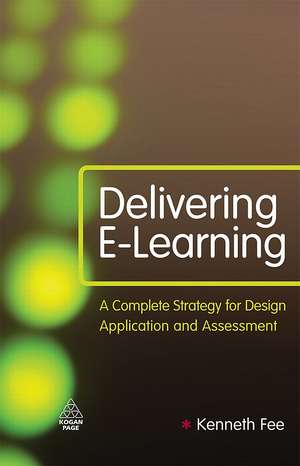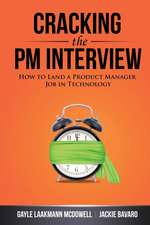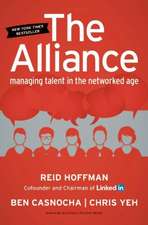Delivering E–Learning – A Complete Strategy for Design Application and Assessment
Autor Kenneth Feeen Limba Engleză Hardback – 2 apr 2009
Preț: 339.50 lei
Nou
Puncte Express: 509
Preț estimativ în valută:
64.97€ • 70.55$ • 54.58£
64.97€ • 70.55$ • 54.58£
Carte tipărită la comandă
Livrare economică 22 aprilie-06 mai
Preluare comenzi: 021 569.72.76
Specificații
ISBN-13: 9780749453978
ISBN-10: 0749453974
Pagini: 192
Dimensiuni: 156 x 234 x 17 mm
Greutate: 0.49 kg
Editura: Kogan Page
ISBN-10: 0749453974
Pagini: 192
Dimensiuni: 156 x 234 x 17 mm
Greutate: 0.49 kg
Editura: Kogan Page
Cuprins
Introduction: Learning in the digital age
Katie, Devinder and Sam; Natives and immigrants; Technophiles and technophobes; Learning through the ages; Training and learning; About this book; Introducing the Virtual Round Table; How to use this book
1. Understanding e-learning
Common misconceptions; When research doesn’t help; A working definition; The three components of e-learning; A different approach; The five models of e-learning; E-learning 2.0 and learning 2.0; Summary of key points
2. Advocacy of e-learning
Different thinking; Empowering learners; Expectations and engagement; Benefits of e-learning; E-learning and learning styles; Criteria for choosing an e-learning approach; Influencing people; The paradigm shift; The Impact Matrix; Organization development strategies; Taking the lead; When e-learning is not appropriate; Summary of key points
3. E-learning strategy: development
What ‘strategy’ is not; What I mean by ‘strategy’; Why you need an e-learning strategy; Where to start; Strategic alignment; Project planning; Strategic questions in e-learning; The essential elements of an e-learning strategy statement; Vendor distractions and diversions; Quality-assuring e-learning; Questions to ask yourself; Summary of key points
4. E-learning strategy: suppliers and resources
ICT meets HR; The e-learning industry; Vendors; E-learning standards and specifications; What the technology does; Virtual learning environments; Authoring tools; E-assessment; Specialist software; Wikis, blogs, forums and podcasts; Other useful concepts; E-learning suppliers: identifying, classifying, selecting and managing them; Twenty things to be wary of with vendors; Working to a budget; Summary of key points
5. E-learning strategy: learning design issues
Strategic design; Why design matters; Design for the learner; Design for purpose; The five general principles; Looking at the different models; The route map; Designing live e-learning; Designing self-managed learning; Designing electronic performance support; Micro-design; Summary of key points
6. E-learning strategy: measurement and results
Making a business case; Five different approaches; Kirkpatrick’s four levels; Return on investment; Return on expectation; Six Sigma; Total value-add; Is e-learning different?; An evaluation checklist; Summary of key points
7. Learning more about e-learning
Personal experience; Self-development; A source of further learning; General reference; Learning in the digital age; Understanding e-learning; Advocacy of e-learning; E-learning strategy: development; E-learning strategy: suppliers and resources; E-learning strategy: learning design issues; E-learning strategy: measurement and results; E-learning in the future; Blogs; My earlier writing; Summary of key points
Epilogue: E-learning in the future
Some conclusions; Looking to the future; The exact science of hindsight; What we can do; Some predictions; Beyond the predictable; Summary of all the key points in this book
Katie, Devinder and Sam; Natives and immigrants; Technophiles and technophobes; Learning through the ages; Training and learning; About this book; Introducing the Virtual Round Table; How to use this book
1. Understanding e-learning
Common misconceptions; When research doesn’t help; A working definition; The three components of e-learning; A different approach; The five models of e-learning; E-learning 2.0 and learning 2.0; Summary of key points
2. Advocacy of e-learning
Different thinking; Empowering learners; Expectations and engagement; Benefits of e-learning; E-learning and learning styles; Criteria for choosing an e-learning approach; Influencing people; The paradigm shift; The Impact Matrix; Organization development strategies; Taking the lead; When e-learning is not appropriate; Summary of key points
3. E-learning strategy: development
What ‘strategy’ is not; What I mean by ‘strategy’; Why you need an e-learning strategy; Where to start; Strategic alignment; Project planning; Strategic questions in e-learning; The essential elements of an e-learning strategy statement; Vendor distractions and diversions; Quality-assuring e-learning; Questions to ask yourself; Summary of key points
4. E-learning strategy: suppliers and resources
ICT meets HR; The e-learning industry; Vendors; E-learning standards and specifications; What the technology does; Virtual learning environments; Authoring tools; E-assessment; Specialist software; Wikis, blogs, forums and podcasts; Other useful concepts; E-learning suppliers: identifying, classifying, selecting and managing them; Twenty things to be wary of with vendors; Working to a budget; Summary of key points
5. E-learning strategy: learning design issues
Strategic design; Why design matters; Design for the learner; Design for purpose; The five general principles; Looking at the different models; The route map; Designing live e-learning; Designing self-managed learning; Designing electronic performance support; Micro-design; Summary of key points
6. E-learning strategy: measurement and results
Making a business case; Five different approaches; Kirkpatrick’s four levels; Return on investment; Return on expectation; Six Sigma; Total value-add; Is e-learning different?; An evaluation checklist; Summary of key points
7. Learning more about e-learning
Personal experience; Self-development; A source of further learning; General reference; Learning in the digital age; Understanding e-learning; Advocacy of e-learning; E-learning strategy: development; E-learning strategy: suppliers and resources; E-learning strategy: learning design issues; E-learning strategy: measurement and results; E-learning in the future; Blogs; My earlier writing; Summary of key points
Epilogue: E-learning in the future
Some conclusions; Looking to the future; The exact science of hindsight; What we can do; Some predictions; Beyond the predictable; Summary of all the key points in this book
Descriere
The current way most people look at e-learning is flawed, and this means they are missing its full potential. The book describes a new and better way of understanding e-learning. The author looks at objections to e-learning and poor past practice before presenting a new approach.




